Home » Posts tagged 'preservation of scripture' (Page 2)
Tag Archives: preservation of scripture
The Hand of God on the KJV Translators: James White Debate 8
The King James Version translators did not claim that they wrote under the same kind of supernatural control that the apostles and prophets received to infallibly record Scripture in the original languages. But did they claim that God’s special providence, His good hand, was with them? Yes!
Continuing the debate review videos on the James White on the King James Version / Textus Receptus vs. the Legacy Standard Bible / Nestle-Aland text, review video #8 looks at the fact that the KJV translators claimed that the “good hand of the Lord” was “upon” them in their translating work, referring to this language in Ezra and Nehemiah for the special providence of God.
In other words, the KJV translators referred their translation work neither to merely the general providence of God—they are stronger than that—nor to a series of continual miracles—that is more than they affirm—but to the special providence of God, so that the Word is by “his singular care and Providence kept pure in all Ages” (London Baptist Confession of 1689).
Furthermore, Scripture teaches that God’s providence is by no means imperfect; He can preserve a “pure Word … in all ages” through special providence without the active intervention of one or more miracles after the miracle of dictating the original manuscripts, as the book of Esther, for example, makes very clear.
Learn more by watching the video below:
You can also watch debate review video #8 in the embedded link above, or see it on Faithsaves.net, YouTube or Rumble.
Please subscribe to the KJB1611 YouTube and the KJBIBLE1611 Rumble channel if you would like to know when more reviews are posted. Thank you.
–TDR
Were the KJV Translators KJV Only? James White KJVO debate 7
Continuing the debate review videos on the James White on the King James Version / Textus Receptus vs. the Legacy Standard Bible / Nestle-Aland text, review video #7 examines whether the KJV translators were KJV Only. (Note that to avoid the historical fallacy discussed in review video #2 obout whether the KJV translators would have been KJV Only today or supported modern versions–as James White claims–I am dealing in review video #7 with actual historical facts, based on actual information, not speculating on what woulda coulda shoulda happened if people who are not alive today were alive in a counterfactual world in my own imagination.) What does the “Translators to the Reader” says about the Authorized Version in comparison to earlier English Bibles?
The KJV translators were thankful for the earlier Textus Receptus-based English Bibles, but, building upon their foundation, they view the KJV as “better.” Variations from the Textus Receptus, even the relatively minor ones in the Latin Vulgate, were viewed as inferior to any Textus Receptus based Bible. How much worse, then, would a modern version that varies far more from the Received Text have been viewed? Find out in the video below!
You can also watch debate review video #7 in the embedded link above, or see it on Faithsaves.net, YouTube or Rumble.
Please subscribe to the KJB1611 YouTube and the KJBIBLE1611 Rumble channel if you would like to know when more reviews are posted. Thank you.
–TDR
James White-Thomas Ross Debate Review 6: LXX & Latin Vulgate
It was a blessing to debate James White on the King James Version / Textus Receptus vs. the Legacy Standard Bible / Nestle-Aland text. The debate when well. I have been continuing to add additional debate review videos. Dr. White claimed that the KJV translators, had they been alive today, would have been completely against their own translation and in favor of modern versions based on the minority Greek text. His claim is astonishingly inaccurate, as the new debate review videos demonstrate. The video below, #6, examines the KJV’s “Translators to the Reader” and what it claims about the LXX and the Latin Vulgate. What the KJV translators say is exactly what I argued for in the debate with Dr. White, and exactly the opposite of what James White argued. His claim about the KJV translators is invalid, and painfully so.
You can watch debate review video #6 in the embedded link above, or see it on Faithsaves.net, YouTube or Rumble. Please subscribe to the KJB1611 YouTube and the KJBIBLE1611 Rumble channel if you would like to know when more reviews are posted. Thank you.
–TDR
Creationism & KJV: James White / Thomas Ross Debate Review 5
Should creationists, advocates of young-earth creationism, use the King James Version? Dr. Henry Morris certainly thought so. When I recently debated James White on the preservation of Scripture, Dr. White claimed that the KJV translators, had they been alive today, would have been “completely” on his side in our debate, standing for modern Bible versions based on the Nestle-Aland Textus Rejectus and opposing the Received Text and their own translation. His claim is astonishingly inaccurate, as the new debate review videos demonstrate. The video below, #5, examines the KJV’s “Translators to the Reader,” where evidence is provided that the KJV translators were young earth creationists–something that a very high percentage of modern Bible version translators are not, and something that positively impacts the translation of the King James Bible.
You can watch debate review video #5 in the embedded link above, or see it on Faithsaves.net, Rumble, or YouTube. Please subscribe to the KJB1611 YouTube and the KJBIBLE1611 Rumble channel if you would like to know when more reviews are posted. Thank you.
–TDR
Ruth 3:15: “he” or “she” went into the city? 1611 & 1769 KJV
Ruth 3:15, in the widely-used 1769 revision of the King James Bible, reads:
“Also he said, Bring the vail that thou hast upon thee, and hold it. And when she held it, he measured six measures of barley, and laid it on her: and she went into the city.”
However, the 1611 edition of the KJV reads:
“And he said, Bring the vaile that thou hast vpon thee, and holde it. And when she helde it, he measured sixe measures of barley, and laide it on her: and he went into the citie.”
Scrivener’s 1873 edition of the KJV likewise reads: “Also he said, Bring the vail that thou hast upon thee, and hold it. And when she held it, he measured six measures of barley, and laid it on her: and he went into the city” (The Cambridge Paragraph Bible: Of the Authorized English Version [Cambridge: Cambridge University Press, 1873], Ru 3:15.)
The New King James Version-which is not just a new King James Version, and which here does not follow the 1611 KJV’s reading-has “she”:
Also he said, “Bring the shawl that is on you and hold it.” And when she held it, he measured six ephahs of barley, and laid it on her. Then she went into the city. (NKJV)
Other modern Bible versions are likewise divided between “he” and “she.” For example, the NIV and NRSV read “he,” while the ESV, LSB, and NASB read “she.”
Which is correct? How do we know? We have discussed various features of the Hebrew Massoretic text on this blog before, such as whether the Hebrew of the name “Jehovah” hints at the incarnation of the Son of God. What do Hebrew manuscripts and Hebrew printed texts read? What about the LXX, the various editions of the Latin Vulgate, other ancient sources, and English Bibles before the KJV? The picture below, from the Hebrew Textus Receptus, the Masoretic text edited by the Hebrew Christian Jacob ben Chayyim, gives the answer (Matthew 5:18):
While both readings in Ruth 3:15 are doubtless factually accurate, since both Boaz and Ruth actually entered the city, the inspired reading, the one dictated by the Holy Spirit to the original penman of Scripture, is “he,” not “she.” Why? Please read my analysis of the passage in this link to find out, and feel free to comment upon it here (but please read it first before commenting). Thank you.
–TDR
James White / Thomas Ross Debate: KJV Translators & KJVO (4)
When I recently debated James White on the preservation of Scripture, Dr. White claimed that the KJV translators would have been “completely” on his side in the debate, were they alive today. I have produced a number of review videos examining this claim, as part of a video series which will, Lord willing, go through the entire debate. In video review #4 we begin to examine the “Translators to the Reader,” KJV prefatory material, and compare what the translators actually believed to what James White claimed for them. This examination uncovers that the KJV translators believed things about the inspiration and preservation of Scripture that are consistent with the Bibliology of verbal, plenary inspiration and preservation of the KJV-only and Confessional Bibliology movements, but are not consistent with the anti-inspiration and anti-preservation views that brought us the Nestle-Aland Greek text. Believing Scripture on its own inspiration and preservation leads by good and necessary consequence to the superiority of the Textus Receptus to the modern Nestle-Aland text. The “Translators to the Reader” also favors English translational choices in passages such as John 5:39 that are supported by the context and are found in other Reformation-era Bibles but are rejected by modern English versions. Thus, the KJV translators would favor their own translational choices, also found in other Reformation-era Bibles, to translational choices found in modern English versions. The KJV translators would view their original language base and translational choices as superior to those of modern versions.
The weakness of James White’s arguments explain why debate reviewers generally claimed that the perfect preservationist side came out ahead in the debate.
You can watch debate review video #4 in the embedded link above, or see it on Faithsaves.net, YouTube or Rumble. If you like the content, please “like” the videos, and consider subscribing to the KJB1611 YouTube and the KJBIBLE1611 Rumble channel if you would like to know when more reviews are posted. Thank you.
–TDR
James White-Thomas Ross Debate Review #3: Epistle Dedicatory
I was thankful for the opportunity to debate James White on the preservation of Scripture. I thought that the debate when well, as did numbers of others who stand for the preservation of Scripture. I have recently added a number of additional debate review videos. Dr. White claimed that the KJV translators, had they been alive today, would have been completely on his side in our debate, standing for modern Bible versions based on the Nestle-Aland Textus Rejectus and opposing the Received Text. His claim is astonishingly inaccurate, as the new debate review videos demonstrate. The video below, #3, examines the KJV’s Epistle Dedicatory, where, among other matters, the translators refer to the KJV as “one more exact Translation,” a more accurate version than the previous Bibles in English. Having their better translation was not a matter of indifference, but one of great “importance.” They thought their version was better, and that it was important that everyone recognize and act on that fact. So do KJV-Only advocates think today—they agree completely with what the KJV translators say in the Epistle Dedicatory on this issue.
You can watch debate review video #3 in the embedded link above, or see it on Faithsaves.net, YouTube or Rumble. Please subscribe to the KJB1611 YouTube and the KJBIBLE1611 Rumble channel if you would like to know when more reviews are posted. Thank you.
–TDR
James R. White, The King James Only Controversy: Inaccuracies
As many blog readers are aware, God gave me the privilege of debating Dr. James R. White, author of The King James Only Controversy: Can You Trust Modern Translations? (Minneapolis, MN: Bethany House, 2009, orig. pub. 1995) on King James Onlyism a few months ago (if you have not seen the debate, you can watch it here.). Our specific debate topic was:
“The Legacy Standard Bible, as a representative of modern English translations based upon the UBS/NA text, is superior to the KJV, as a representative of TR-based Bible translations.”
I believe that the debate went well, to the glory of the God who has perfectly preserved His Word and in answer to the prayers of many of His saints. Since the debate, I have been working on a series of debate review videos, a few of which are now live, and many more of which should go live relatively shortly (I would have some new ones live already, but had some issues with audio quality). I must confess that in reviewing the arguments made by Dr. White I have been impressed with their weakness. During the debate itself I was delighted that he did not bring up anything that I was not expecting or that there were not readily available answers, but post-debate review has revealed even further weaknesses with his case. What kind of weaknesses? Subscribe to my Rumble or YouTube channel (or both) to find out when I discuss them there. (I probably will comment on them here at What is Truth? as well, so you can also just keep your eyes on this blog.)
James White has on numbers of occasions indicated that he wrote The King James Only Controversy in merely a handful of months, and, unfortunately, the evidences for his rapid composition are most numerous. One example that we discussed here at What is Truth? before the debate was his astonishing affirmation–backed with no written sources or any evidence of any kind–that some King James Only people think Abraham, Moses, and the Old Testament prophets all actually spoke English, not Hebrew. While these people do appear to exist in Dr. White’s imagination, there does not appear to be any documentation of their existence in the real world. Even if one is not King James Only, creating straw-men, inaccurate arguments is not what one would want in a treatment of the issue under discussion.
Another example of the many astonishing and inaccurate claims of nutty radicalism by King James Only advocates appears in Dr. White’s discussion of people who allegedly think various people outside of the original writers of Scripture were inspired. (Biblically speaking, even the original writers were not inspired–their writings, not their persons, were authored by the Holy Spirit without any error; but saying “Peter was inspired” or “Moses was inspired,” while not accurate, is not as nuts as what James White is claiming.) What am I talking about? Consider the following arguments James White employs against King James Onlyism:
Anyone who believes the TR [Textus Receptus] to be infallible must believe that Erasmus, and the other men who later edited the same text in their own editions (Stephanus and Beza), were somehow inspired … [y]et none of these men ever claimed such inspiration. (pg. 96)
We pause only long enough to note that the KJV Only advocate … has to believe that Theodore Beza … was divinely inspired” (pg. 105)
“The KJV translators were not infallible human beings” (pg. 115)
Yet a person who stops for a moment of calm reflection might ask, “Why should I believe Jerome was inspired[?] … Do I have a good reason for believing this?” (pg. 181)
No citation of any King James Only advocate who believes in the inspiration of Jerome, or Erasmus, or Beza, or Stephanus, or the entire group of King James Version translators, appears. James White does quote Edward F. Hills on page 96–specifically denying that the Textus Receptus was produced under inspiration or through a Divine miracle. Quotations by any prominent (or obscure!) advocate of King James Onlyism, or any KJV Only school, or church, or even a kid in the third grade in a KJV Only Sunday School affirming that Jerome, Erasmus, Beza, Stephanus, or the entire group of King James Version translators were inspired does not appear. They do not seem to exist in the real world, but only in the imaginary world that contains King James Only advocates who think that Abraham, Moses, and the prophets spoke Hebrew.
James White’s The King James Only Controversy, unfortunately, has many such inaccuracies and misrepresentations. It does not fairly and accurately present the positions of the belief system it seeks to refute. Consequently, while it may convince people who do not know anything about the King James Only movement that being KJVO is crazy, it will not be very effective convincing those who believe in the superiority of the preserved Word in the Textus Receptus and Authorized, King James Version. Rather than being silenced by the power of James White’s critique, they are likely to be disgusted by the inaccurate straw-manning of their belief system.
–TDR
Four Views On the Spectrum of Evangelicalism: A Book Review
I recently listened on Audible through the book Four Views on the Spectrum of Evangelicalism, contributors Kevin Bauder, R. Albert Mohler Jr., John G. Stackhouse Jr., and Roger E. Olson, series editor Stanley N. Gundry, gen eds. Andrew David Naselli & Collin Hansen (Grand Rapids, MI: Zondervan, 2011). The four views presented are:
Fundamentalism: Kevin Bauder
Confessional Evangelicalism, R. Albert Mohler, Jr.
Generic Evangelicalism, John G. Stackhouse, Jr.
Postconservative Evangelicalism, Roger E. Olson
When I listen through a book on Audible I usually listen through twice, since it is easier to miss things when listening to a book than it is when reading one.
For most of the book, I was cheering for Kevin Bauder, for reasons which will be clear below.
Let the Wolves In!
Roger Olson’s View
Beginning with the bad people who are fine letting the wolves in: Roger Olson argues that “inerrancy cannot be regarded as necessary to being authentically evangelical. It is what theologians call adiaphora–a nonessential belief” (pg. 165). What is more, “open theists [are] not heretical” (pg. 185). Evangelicals do not need to believe in penal substitution: “there is no single evangelical theory of the atonement. While the penal substitution theory (that Christ bore the punishment for sins in the place of sinners) may be normal, it could hardly be said to be normative” (pg. 183). However, fundamentalism is “orthodoxy gone cultic” (pg. 67). Deny Christ died in your place, think God doesn’t know the future perfectly, and think the Bible is full of errors? No problem. Let a Oneness Pentecostal, anti-Trinitarian “church” in to the National Association of Evangelicals (pg. 178)? Great! Be a fundamentalist? Your are cultic.
Summary: While Christ says His sheep hear His voice, and Scripture unambiguously teaches its infallible and inerrant inspiration (2 Timothy 3:16; 2 Peter 1:16-21) as the Word of the God who cannot lie, and penal substitution is at the heart of the gospel, Dr. Olson thinks one can deny these things and not only be a Christian but be an evangelical. Let in the heretics and the wolves!
Let Some of the Wolves In!
John Stackhouse’s View
John G. Stackhouse, Jr. is only slightly more conservative than Dr. Olson. For Dr. Stackhouse, “open theists are, to my knowledge, genuine evangelicals” (pg. 132). No! But at least anti-Trinitarian Oneness Pentecostals who have a false god, a false gospel, and are going to hell are not evangelicals (pg. 204). Does something so obvious even deserve a “Yay”?
What about penal substitution? “substitutionary atonement is a nonnegotiable part of the Christian understanding of salvation, and evangelicals do well to keep teaching it clearly and enthusiastically” (pg. 136). One cheer for Dr. Stackhouse. But then he goes on:
But suppose somebody doesn’t teach it? Does that make him or her not an evangelical? According to the definition I have been using, such a person might well still be an evangelical. Indeed, the discussion in this section takes for granted that some (genuine) evangelicals are uneasy about substitutionary atonement, and a few even hostile to that idea. But they remain evangelicals nonetheless: still putting Christ and the cross in the center, still drawing from Scripture and testing everything by it, still concerned for sound and thorough conversion, still active in working with God in his mission, and still cooperating with evangelicals of other stripes. Evangelicals who diminish or dismiss substitutionary atonement seem to me to be in the same camp as my evangelical brothers and sisters who espouse open theism: truly evangelicals, and truly wrong about something important. (pgs. 136-137)
So the one cheer quickly is replaced by gasps for air and a shocked silence, as the heretics and the wolves come right back in again. Dr. Bauder does a good job responding to and demolishing these justifications of apostasy and false religion.
Write Thoughtful Essays Showing that the Wolves Need Critique, but
Let the World and the Flesh In and Don’t Be A Fundamentalist Separatist:
Al Mohler’s View
R. Albert Mohler, Jr. calls his view “Confessional Evangelicalism,” although he never cites any Baptist or any other confession of faith in his essay. He thinks you do actually need to believe Christ died in your place, open theism is unacceptable, and an inerrant Bible is something worth standing for (1.5 cheers for Dr. Mohler, led by very immodestly dressed Southern Baptist cheerleaders who know that God made them male and female, not trans). However, Dr. Mohler does not believe in anything close to a Biblical doctrine of ecclesiastical separation. His Southern Baptist denomination is full of leaven that is corrupting the whole lump. His ecclesiastical polity is like the Biden administration on the USA’s southern border–claiming that there are a few barriers that keep out people who are trying to creep in unawares while millions of illegals come pouring in with a nod and a wink.
Dr. Bauder makes some legitimate criticisms of Dr. Mohler, while also being much more cozy with him than John the Baptist or the Apostles would have been. Dr. Bauder says that Mohler is “doing a good work, and that work would be hindered if I were to lend credibility to the accusation that he is a fundamentalist” (pg. 97). That is Bauder’s view of the false worship, the huge number of unregenerate church members, the spiritual deadness, the doctrinal confusion, and the gross disobedience in the Southern Baptist Convention. Hurray? Dr. Bauder’s discussion is not how the first century churches would have worked with disboedient brethren (2 Thessalonians 3:6, 14).
Separate From the Wolves, but Not From Disobedient Sheep:
Kevin Bauder’s “Mainstream Fundamentalist” View
Kevin Bauder is a self-identified “historic fundamentalist.” (But what if there never was a unified “historic fundamentalism”?) He is the only one of the four contributors who actually thinks that ecclesiastical separation needs to take place. So two cheers for Dr. Bauder! Bauder argues: “the gospel is the essential ground of all genuinely Christian unity. Where the gospel is denied, no such unity exists” (pg. 23). Therefore, “Profession of the gospel is the minimum requirement for visible Christian fellowship. The gospel is the boundary of Christian fellowship” (pg. 25). Bauder does a good job showing that people must separate from those who deny the gospel, or those who fellowship with those who deny the gospel. Two more cheers for Bauder.
However, Bauder warns about what he calls “hyper-fundamentalism,” which is actually Biblically consistent separatism (and which gets no voice to defend itself in this book). He has strong words for the “hyper-fundamentalists”–stronger than the way he voices his disagreements with Mohler:
One version of fundamentalism goes well beyond the idea that I summarized earlier in this essay. It could be called hyper-fundamentalism. Hyper-fundamentalism exists in a variety of forms. … [H]yper-fundamentalists sometimes adopt a militant stance regarding some extrabiblical or even antibiblical teaching. For example, many professing fundamentalists are committed to a theory of textual preservation and biblical translation that leaves the King James Version as the only acceptable English Bible. When individuals become militant over such nonbiblical teachings, they cross the line into hyper-fundamentalism. … [H]yper-fundamentalists understand separation in terms of guilt by association. To associate with someone who holds any error constitutes an endorsement of that error. Persons who hold error are objects of separation, and so are persons who associate with them. … [H]yper-fundamentalists sometimes turn nonessentials into tests of fundamentalism. For example, some hyper-fundamentalists assume that only Baptists should be recognized as fundamentalists. Others make the same assumption about dispensationalists, defining covenant theologians out of fundamentalism. Others elevate extrabiblical personal practices. One’s fundamentalist standing may be judged by such criteria as hair length, musical preferences, and whether one allows women to wear trousers. … Hyper-fundamentalism takes many forms, including some that I have not listed. Nevertheless, these are the forms that are most frequently encountered. When a version of fundamentalism bears one or more of these marks, it should be viewed as hyper-fundamentalist. It is worth noting that several of these marks can also be found in other versions of evangelicalism.
Hyper-fundamentalism is not fundamentalism. It is as a parasite on the fundamentalist movement. … Mainstream fundamentalists find themselves in a changing situation. One factor is that what was once the mainstream may no longer be the majority within self-identified fundamentalism. A growing proportion is composed of hyper-fundamentalists, who add something to the gospel as the boundary of minimal Christian fellowship. If the idea of fundamentalism is correct, then this error is as bad as dethroning the gospel from its position as the boundary.
Another factor is that some evangelicals have implemented aspects of the idea of fundamentalism, perhaps without realizing it. For example, both Wayne Grudem and Albert Mohler (among others) have authored essays that reverberate with fundamentalist ideas. More than that, they and other conservative evangelicals have put their ideas into action, seeking doctrinal boundaries in the Evangelical Theological Society and purging Southern Baptist institutions.
Mainstream fundamentalists are coming to the conclusion that they must distance themselves from hyper-fundamentalists, and they are displaying a new openness to conversation and even some cooperation with conservative evangelicals. Younger fundamentalists in particular are sensitive to the inconsistency of limiting fellowship to their left but not to their right. (pgs. 43-45)
By Bauder’s definition, the first century churches would have been “hyper-fundamentalist” parasites. (Note that Bauder also makes claims such as: “Some hyper-fundamentalists view education as detrimental to spiritual well-being” [pg. 44]. There is probably a guy named John somewhere in a “hyper-fundamentalist” church that thinks education is a sin, and there is also probably a lady named Mary in a neo-evangelical church who thinks the same thing, and a big burly fellow named Mat in a post-conservative church who agrees with them, but nothing further about these sorts of claims by Bauder needs further comment. So we return to something more serious.) Do you separate over more than just the gospel? Do you, for example, separate over men who refuse to work and care for their families (2 Thess 3:6-14)? You are a parasite, just as bad, if not worse, than people who do not separate at all. Do you separate over false worship (“musical styles” to Bauder), since God burned people up for offering Him strange fire (Lev 10:1ff)? You are bad–very, very bad. Let the strange fire right in to the New Testament holy of holies (1 Corinthians 3:16-17)!–even though God says He will “destroy” those who do such a wicked thing. Do you take a stand for the perfect preservation of Scripture–as did men like George S. Bishop, one of the contributors to The Fundamentals (see, e. g., George S. Bishop, The Fundamentals: “The Testimony of the Scriptures to Themselves,” vol. 2:4 [Bellingham, WA: Logos Bible Software, 2005], 80ff.)? You King James Only parasite! Do you seek to follow the Apostle Paul and the godly preacher Timothy, and allow “no other doctrine” in the church–not just “no other gospel,” but “no other doctrine” (1 Timothy 1:3)? Do you repudiate Dr. Bauder’s schema of levels of fellowship to seek what Scripture defines as unity: “that ye all speak the same thing, and that there be no divisions among you; but that ye be perfectly joined together in the same mind and in the same judgment” (1 Corinthians 1:10)? You are bad–very, very bad. You should be rejected, and we should join hands, instead, with evangelicals like Mohler who write essays that we “reverberate” with while they work in a Southern Baptist Convention teeming with unregenerate preachers and church members which almost never obeys Matthew 18:15-20 and practices church discipline. If you think Scripture is not kidding when it says men with long hair or women with short hair is a “shame” (1 Corinthians 11:1-16), or you do not want the women in your church to be an “abomination” (Deuteronomy 22:5) by wearing men’s clothing like pants, then you are certainly, certainly beyond the pale. Corruptions in our culture do not matter-let them into what should be Christ’s pure bride! Everyone knows that the loving thing to do is to allow half the congregation to be an abomination so that they can fit in with our worldly, hell-bound culture.
Dr. Bauder at least says one should separate over the gospel, and he does a good job proving that Scripture requires churches to do that. He has numbers of effective critiques of positions to his left. He clearly has studied history and is a thinker. But he does not present a Biblical case for consistent separatism-very possibly because consistent ecclesiastical separation is only possible when one rejects universal “church” ecclesiology for local-only or Landmark Baptist ecclesiology, and views the local assembly as the locus for organizational unity, while Bauder believes in a universal “church” and must somehow accomodate Scripture’s commands for unity in the body of Christ to that non-extant entity. As the book A Pure Church: A Biblical Theology of Ecclesiastical Separation demonstrates, churches must separate from all unrepentant and continuing disobedience, not just separate over the gospel. Dr. Bauder’s view is insufficient. Furthermore, his critique of what he labels “hyper-fundamentalism” is inconsistent. If the “hyper-fundamentalists” do things like separate too much and take stands for pure worship, are they thereby denying the gospel? If not, why does Bauder think they should be repudiated and separated from?
One other important point: some of those who would repudiate Dr. Bauder’s view as too weak are themselves to his left, not his right. For example, the King James Bible Research Council and the Dean Burgon Society, prominent King James Only advocacy organizations that would claim to be militant fundamentalists, are willing to fellowship with anti-repentance, anti-Lordship, anti-Christ (for does not “Christ” mean “the Messiah, the King, the Lord”?) advocates of heresy on the gospel as advocated by Jack Hyles, Curtis Hudson and the Sword of the Lord, and the so-called “free grace” movement of Zane Hodges. Fundamentalist schools that stand for gender-distinction and conservative worship, such as Baptist College of Ministry in Menomonee Falls, WI, are willing to fellowship with people who believe the truth on repentance and the gospel as well as with anti-repentance heretics at Hyles Anderson College and First Baptist (?) Church (?) of Hammond, Indiana like John Wilkerson. If you think Kevin Bauder’s Central Baptist Seminary is too weak, but you yourself do not separate even over the gospel, but tolerate false views of repentance or other heresies on the gospel that Paul would not have tolerated for one hour (Galatians 1:6-9, 2:5), you need to reconsider your position.
Take a stand–follow God. Allow “no other doctrine” (1 Timothy 1:3). Separate not just on the gospel, but from all unfruitful works of darkness (Ephesians 5:11). You may be excluded from the book Four Views on the Spectrum of Evangelicalism, with its more liberal contributors viewing you as “cultic” and the most conservative contributor viewing you as a “parasite” and a “hyper-fundamentalist,” but that is fine-God your adopted Father, Christ your gracious Redeemer, and the blessed Holy Spirit, who has made your body and your congregation into His holy temple, will be pleased. The needy sheep in your flock who had a faithful pastor will embrace you and thank you as they shine like the sun in the coming glorious kingdom, as you led them to faithfulness to Christ and a full reward, instead of compromise. If Christ does not return first, your church may, by God’s grace, continue to pass on the truth and to multiply other true churches for centuries, instead of falling into apostasy because of a sinful failure to consistently practice Biblical separation.
Get off the spectrum of evangelicalism entirely and follow Scripture alone for the glory of God alone in a separatist, Bible-believing and practicing Baptist church. You will be opposed now, but God will be glorified, and it will be worth it all, when we see Jesus.
–TDR
Note: Links to Amazon are affiliate links.
Peter Ruckman, KJV Only Blasphemer
Peter Ruckman, the notorious King James Only advocate, is a blasphemer.
Why do I say this? I have never read a book by Peter Ruckman from cover to cover. I tried reading one years ago but it was too vitriolic for me; I felt defiled reading it, so I stopped. Now recently I had the privilege of debating evangelical apologist James White on the topic of whether the King James Version and the Textus Receptus are superior to the Legacy Standard Bible and the Textus Rejectus. In James White’s King James Only Controversy he painted the moderate mainstream of KJV-Onlyism with such astonishing inaccuracy. James White makes arguments such as (speaking about the translation Lucifer for Satan in Isaiah 14:12): “The term Lucifer, which came into the biblical tradition through the translation of Jerome’s Vulgate, has become … entrenched … [y]et a person who stops for a moment of calm reflection might ask, ‘Why should I believe Jerome was inspired to insert this term at this point? Do I have a good reason for believing this?’”[1] Dr. White argues: “Anyone who believes the TR to be infallible must believe that Erasmus, and the other men who later edited the same text in their own editions (Stephanus and Beza), were somehow ‘inspired.’”[2] Of course, White provides no sources at all for any King James Only advocate who has ever claimed that Jerome, Stephanus, Beza, or Erasmus were inspired, since no such sources exist. As I pointed out in the debate, Dr. White makes bonkers claims like that KJV-only people think Abraham and Moses actually spoke English (again, of course, totally without any documentation of such people even existing).
Thus, James White’s astonishing inaccuracies made me wonder if he is even representing Peter Ruckman accurately. I have no sympathy for Peter Ruckman’s peculiar doctrines—as the godly, non-nutty, serious thinker and KJV Only advocate David Cloud has explained in his good book What About Ruckman?, Peter Ruckman is a heretic. I am 100% opposed to Ruckman’s heretical, gospel-corrupting teaching that salvation was by works in the Old Testament and will be by works in the Millennium. It makes me wonder if Ruckman was truly converted, or if he was an example of what was often warned about in the First Great Awakening by George Whitfield and others, namely, “The Dangers of an Unconverted Ministry.” I am 100% opposed to Ruckman’s disgraceful lifestyle that led him to be disqualified to pastor. I am 100% opposed to his ungodly language, to his wicked racism, to his wacky conspiracy theories, and to his unbiblical extremism on the English of the KJV. At the same time, however opposed I am to him, as a Christian I am still duty-bound to attempt to represent his position accurately. The way Dr. White badly misrepresented the large moderate majority of KJV-Onlyism made me wonder if James also misrepresented Dr. Ruckman.
As a result, I acquired a copy of Ruckman’s response to James White’s King James Only Controversy, a book called The Scholarship Only Controversy: Can You Trust the Professional Liars? (Pensacola, FL: Bible Baptist Bookstore, 2000). The title page claims: “This book exposes the most cockeyed piece of amateur scholarship that ever came out of Howash University.” Based on the title, it was already evident that I would be in for a quite painful and dreary time going through the book, but God is a God of truth, and nobody, not even Peter Ruckman, should be misrepresented by a Christian. Christians must be truthful like their God, who cannot lie (Titus 1:2).
While Christians should not misrepresent anyone, I found it hard to cut through the slander and hyperbole and bloviations in Ruckman’s book as I attempted to get to something substantial. Ruckman can say things such as: “Irenaeus quotes the AV one time and the NASV one time. … Eusebius (later) quotes the King James Bible four times and the NASV once” (pg. 117). Peter Ruckman has an earned Ph. D. from Bob Jones University. He knows that the NASV and the KJV/AV did not exist when Irenaeus and Eusebius lived. He knows that the English language did not yet exist. (I wonder if James White’s completely undocumented affirmation in his King James Only Controversy—which he also declined to prove any support for at all in our debate—that some KJV-only advocates believe that Abraham and Moses spoke English derives from a misunderstanding some Nestle-Aland advocate had with a Ruckmanite who followed his leader in making outlandish verbal statements, and those outlandish verbal statements became, in James White’s mind, a real group of people who actually thought that the Old Testament prophets spoke English, although he has no evidence such a group ever existed, somewhat comparable to Ruckman saying that Irenaeus and Eusebius quoted the Authorized Version and the New American Standard Version.) Of course, at this point I am speculating on something that I should not have to speculate upon, since James White has had decades to provide real documentation of these KJV-only groups who allegedly think English was the language spoken in ancient Israel, but he has not done so.
I did discover something that made me wonder if the statement White quotes about Ruckman and advanced revelation in English were similar exaggerations. Note the following from Ruckman’s book, on the first two pages:
“Scholarship Onlyism” is much easier to define than the mysterious “King James Onlyism.” For example, while “using” (a standard Alexandrian cliche) the Authorized Version (1611), I recommend Tyndale’s version (1534), The Great Bible (1539), The Geneva Bible (1560), Valera’s Spanish version (1596), Martin Luther’s German version (1534), and a number of others. Here at Pensacola Bible Institute, our students “use” (the old Alexandrian cliche) from twenty-eight to thirty- two English versions, including the RV, RSV, NRSV, ASV, NASV, Today’s English Version [TEV], New English Bible [NEB], New World Translation, [NWT], NIV, and NKJV. Our brand of “King James Onlyism” is not the kind that it is reported to be. We believe that the Authorized Version of the English Protestant Reformation is the “Scriptures” in English, and as such, it is inerrant until the alleged “errors” in it have been proved “beyond a reasonable shadow of a doubt” to be errors. Until such a time, we assume that it is a perfect translation. No sane person, who was not criminally minded, would take any other position. In a court of law, the “accused” is “innocent until proven guilty” (i.e., O. J. Simpson) … Since not one apostate Fundamentalist (or Conservative) in one hundred and fifty years has yet been able to prove one error in the Book we hold in our hands (which happens to be written in the universal language of the end time), we assume it is the last Bible God intends to give mankind before the Second Advent. God has graciously preserved its authority and infallibility in spite of “godly, qualified, recognized scholars” in the Laodicean period of apostasy (1900-1990), so we consider it to be the final authority in “all matters of faith and practice.” We go a little beyond this, and believe it to be the final authority in all matters of Scholarship. That is what “bugs the tar” (Koine, American) and “beats the fire” (Koine, American) out of the Scholarship Only advocates who are in love with their own intellects.[3]
Notice that Ruckman himself “recommends” Bibles other than the KJV, such as the Tyndale, Geneva, and Textus Receptus based foreign language Bibles. At least in this quotation, he does not say God re-inspired the Bible in 1611, but he says that the translation should be presumed innocent until proven guilty, as is proper in a court of law. That is a much more moderate position than James White attributes to him.
So is it possible that the extreme statements James White quotes on pg. 27 of The King James Only Controversy are hyperbole on Ruckman’s part? (Ruckman has plenty of hyperbole—even in the quotation above, I cut out a weird statement he made about David Koresh.) I cannot prove that James White was deliberately misrepresenting Ruckman—Ruckman’s style is too bizarre for one to easily determine what he actually means (another of many, many reasons why I cannot and do not recommend that you read any of his books). However, from this statement we can see that if one wishes to prove that Ruckman actually believes something it is important to be very careful, as he not only makes large numbers of uncharitable and nutty attacks on others, but many hyperbolic statements.
Unfortunately, as years ago I was not able to finish a Ruckman book because it was bursting with carnality, so this time I was not able to finish Ruckman’s critique of James White’s King James Only Controversy because it was not just carnal, but blasphemous. On page 81 Ruckman takes God’s name in vain, reprinting the common curse phrase “Oh my G—” in his book. A search of its electronic text uncovers that Ruckman blasphemes again on page 269, 308, 312, 452 & 460. He could do so elsewhere as well, but those statements are enough, and I am not excited about searching for and discovering blasphemy. The Bible says: “I will set no wicked thing before mine eyes: I hate the work of them that turn aside; it shall not cleave to me. A froward heart shall depart from me: I will not know a wicked person.” (Psalm 101:3-4). If we were living in the Old Testament theocracy, Peter Ruckman would be stoned to death for blasphemy. We are not in the Old Testament theocracy, but His blasphemous language is still disgusting, abominable, and wicked in the sight of the holy God. That someone who claimed to be a Christian preacher would write such wickedness is even more disgusting. Ruckman was a “Baptist” the way Judas or Diotrephes or Jezebel was a Baptist. He would be subject to church discipline if he snuck in unawares and became a member of our church.
So did James White misrepresent Peter Ruckman? White’s representation of the non-wacko large majority of KJV-onlyism was far from accurate, so I wondered if he even got Ruckman right. From what I read of Ruckman’s book before Ruckman started to blaspheme, I thought it was possible that James White did not even get Ruckman right, although with Ruckman’s pages bursting with carnality and total weirdness I could see why getting Ruckman wrong would be easy to do. I am unable to determine definitively one way or the other whether James White was accurate on Peter Ruckman’s position (or if Ruckman himself was even consistent in explaining himself) since I am not going to read a book by someone who breaks the Third Commandment while claiming to be a Baptist preacher. That is disgusting to me, and ineffably more disgusting to the holy, holy, holy God. Ruckman’s critique of James White’s book deserves to go in the trash, where its filthy language belongs.
I do not recommend James White’s King James Only Controversy because it does not base itself on God’s revealed promises of preservation and because of its many inaccuracies. I do not recommend Peter Ruckman’s critique of James White’s King James Only Controvesy because it is not only weird and carnal, but repeatedly blasphemous. Certainly for a new Christian, and possibly for a mature one, the recycle bin could well be the best place for both volumes.
–TDR
[1] James R. White, The King James Only Controversy: Can You Trust Modern Translations? (Minneapolis, MN: Bethany House, 2009), 180–181.
[2] James R. White, The King James Only Controversy: Can You Trust Modern Translations? (Minneapolis, MN: Bethany House, 2009), 96.
[3] Peter Ruckman, The Scholarship Only Controversy: Can You Trust the Professional Liars? (Pensacola, FL: Bible Baptist Bookstore, 2000), 1-2.
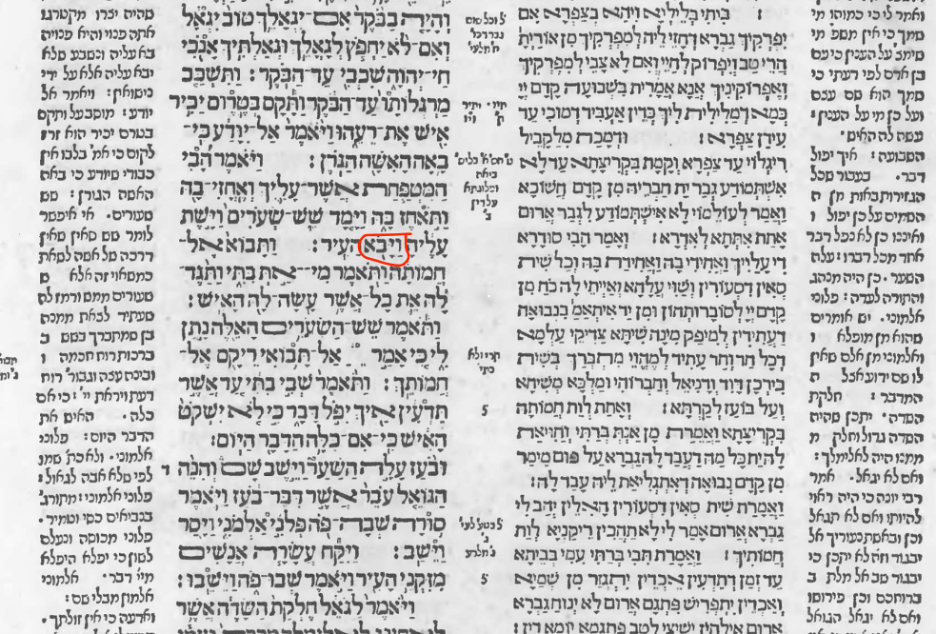
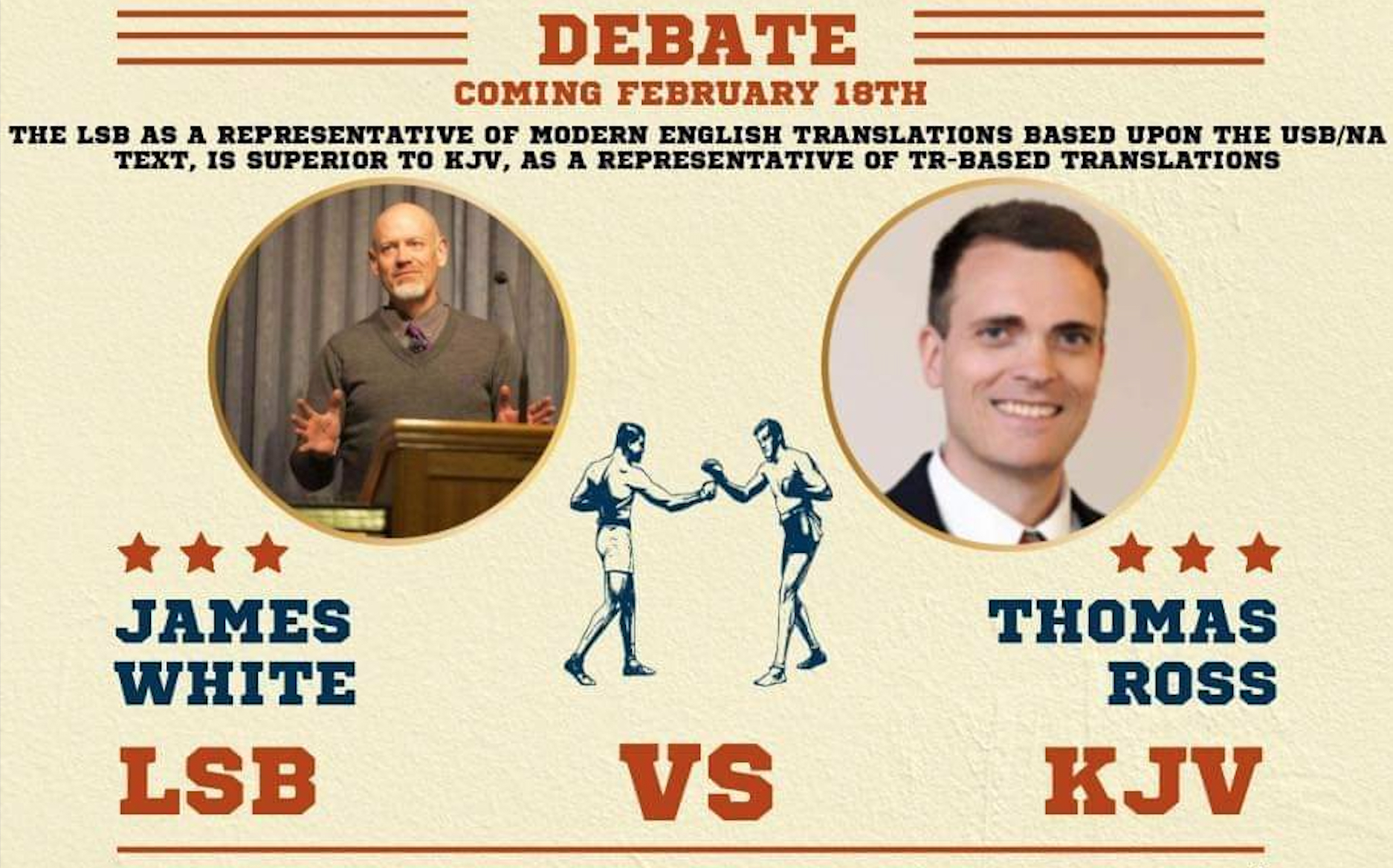



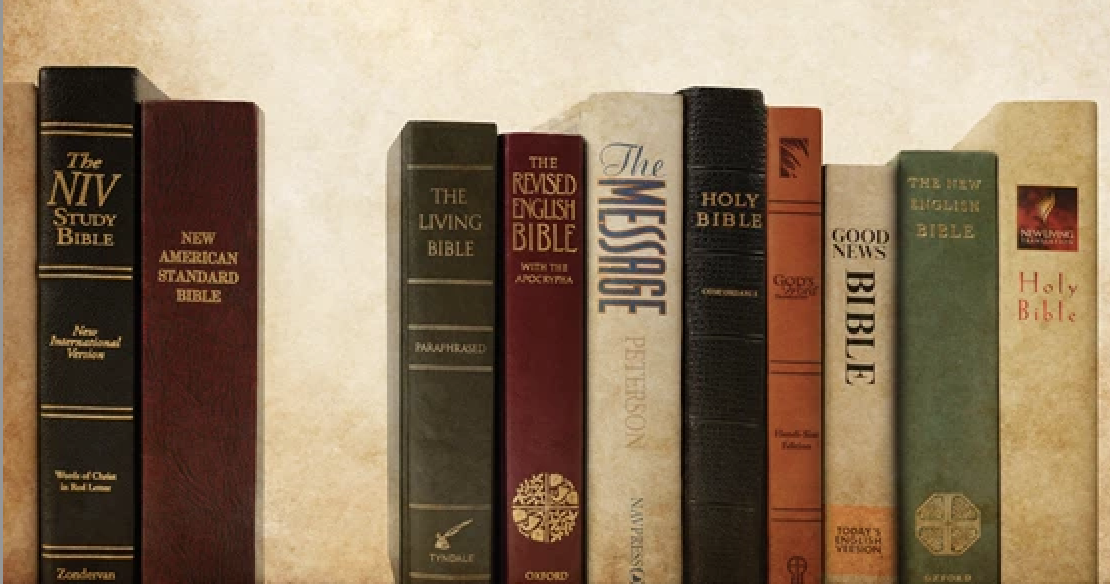
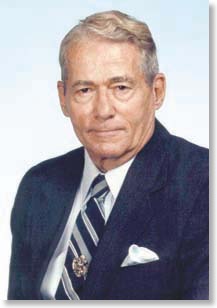
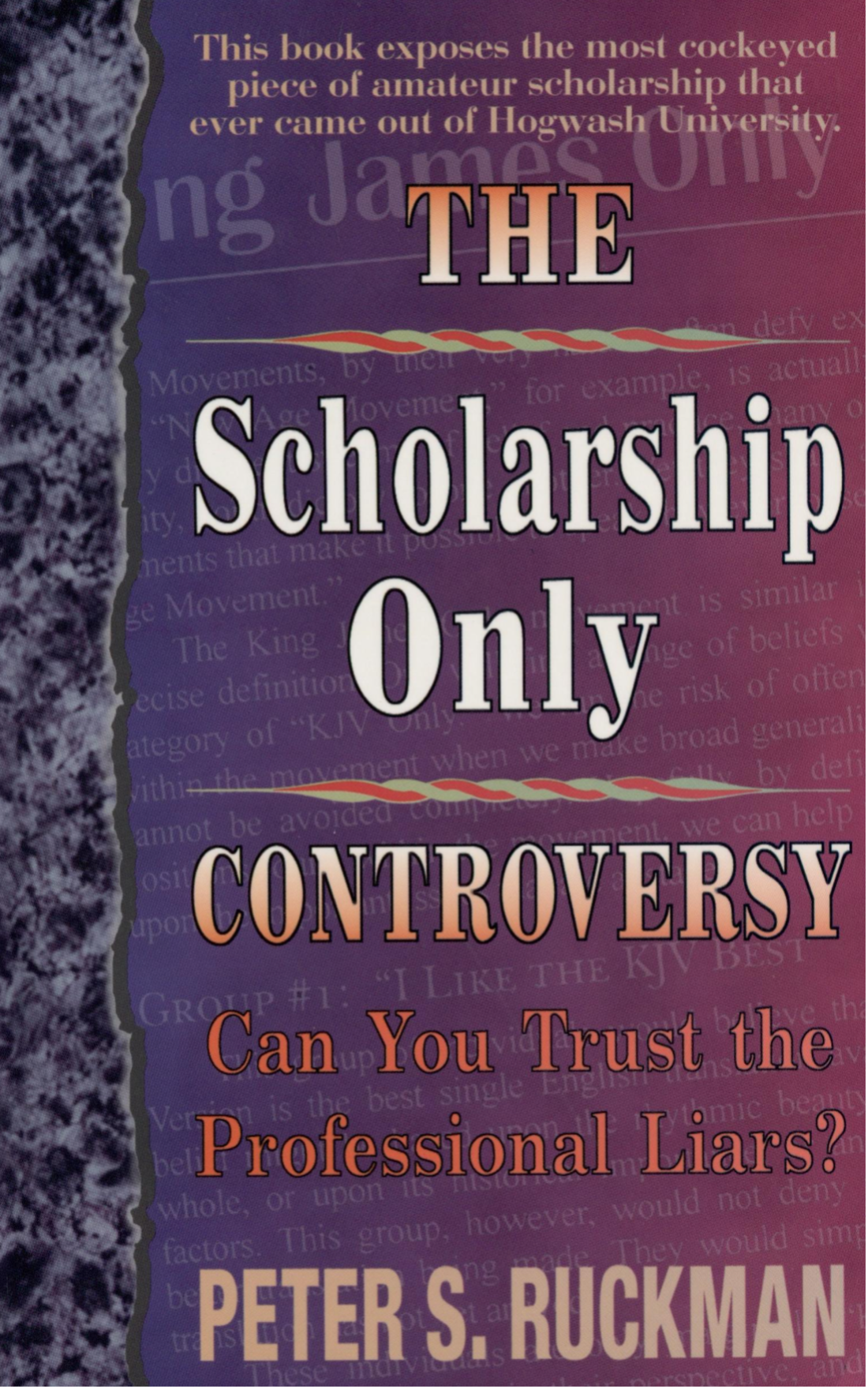
Recent Comments